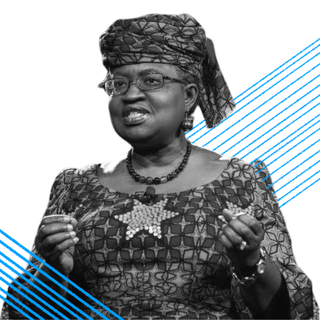In It’s Okay, we defend our most embarrassing, unpopular opinions.
Decisiveness has long been a trait synonymous with a good leader, conflated with qualities such as boldness, confidence, and stability. Scores of how-to guides on the Internet will tell you how to be more decisive and why you should be more decisive — both for your own growth and progress and for your workplace and the sake of your colleagues. Decisiveness, experts have said, cuts through long, drawn-out processes that seemingly never achieve any goal, that leave people hanging and, in the end, frustrated. A good leader, they say, knows what they want, takes control, and goes after their goal with strong decision-making abilities and the drive to succeed.
But what if you’re not a decisive person? What if every time you want to make a decision, you’re inundated with self-doubt, unwittingly playing the devil’s advocate to your own thoughts, caught in the never-ending process of considering all possible avenues of exploration?
Women, especially, get the short end of the stick here. Decision-making has been identified as a skill that develops with training and practice, but women, through gendered experiences of education, work, family, and even agency over their own bodies, are often not considered stable enough to be decisive and are usually not allowed to be the primary decision-maker in most situations.
Related on The Swaddle:
It’s Okay: Not to Have an Opinion About Everything
This social norm, however, comes from a misinterpreted view of decisiveness, and how helpful the current version actually is. Men, who are widely thought to be more clear-headed, and hence, more decisive in stressful situations, often immediately launch into risk-taking mode when faced with a tough decision, explains Therese Huston, Ph.D., founding director of the Center for Faculty Development at Seattle University, tells Forbes. Women, on the other hand, tend to take more time evaluating the risks of all possible decisions, weighing contingencies, and then arriving at the most efficient decision, she says. This lag in making a decision, however, is conflated with a lack of decisiveness, but in reality, immediate decisions are often not well thought out, regardless of how efficient they may seem in the beginning.
If a woman says, “‘Let’s not decide until everyone is on board,’ it will be taken as confirming evidence she’s dragging her feet,” Huston says to Forbes.
Our current interpretation of decisiveness, then, is inherently faulty: immediate decision-making often mistakes overconfidence for confidence and risk-taking for efficiency. In reality, the people who don’t seem decisive, who take their time to weigh all options, are better positioned to achieve a more favorable outcome.
Decisiveness — pure and immediate — can be a response to fear and uncertainty, or it can be a sign of laziness. Good decisions need careful thought and consideration, which can be inconvenient, but necessary nonetheless. This is not to say decisiveness is always bad, and indecisiveness is always good — both in extremes can wreak havoc on the outcome of any particular decision. But removing the cultural mandate on decisiveness can help people embrace their lack of it, injecting some semblance of calm into the process of making a decision.
Thinking things through, no matter the urgency, is a valuable, even brave trait of truly reliable leaders. Admitting you can’t, and don’t want to, make a split-second decision is never a bad thing — as long as you don’t take too long. Find your own middle.
You’ll be all right.




